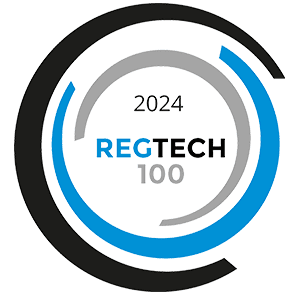In 2022, The Securities and Exchange Commission proposed amendments to its current Environmental, Social and Governance (ESG) disclosures guidelines.
The SEC’s goal with these newly proposed rules is to ensure funds that purport to be environmentally and socially conscious are making truly measurable strides forward rather than greenwashing their products because sustainable companies and funds are more likely to be high performers and deliver higher returns.
What’s Included in the Proposed Amendments?
The proposed changes are intended to increase disclosure requirements regarding ESG strategies. Firms would be required to develop disclosure processes based on how heavily their portfolios and business strategies are centered on ESG-focused funds.
The proposal would require disclosures regarding ESG in multiple client-facing materials, including fund prospectuses, annual reports, and adviser brochures.
Why Is This Change Being Made?
Higher ESG performance strongly correlates with higher financial performance, according to a 2020 Harvard study. The SEC’s task force has also noted that consumers increasingly consider ESG a criterion for selecting funds and investments.
When money is at stake, people and entities are always willing to push narratives that give them a better chance at a more significant piece of the pie.
The proposed SEC rule intends to reduce the potential for greenwashing, a process by which companies present themselves as more sustainable than they are—for example; the SEC levied a $1.5 million fine against BNY Mellon in May of 2022 for false claims made regarding their ESG quality audits.
Who Does this Change Impact?
This proposal will affect investment advisers, some exempt reporting funds, mutual funds, ETFs, and BDCs. Advisers will have to describe their use of ESG factors, strategies, investment analysis methods, and how they vote relevant proxies.
What New Disclosures and Requirements Might My Firm Have to Complete?
Each category of funds (integration funds, ESG-focused funds, and impact funds) requires different disclosures.
Integration funds
Integration funds integrate both ESG and non-ESG factors in their consideration process. These funds may be required to share:
-
- Types of assets included or excluded in their investments/strategies
- Whether funds are tracking an index
- Specific impacts they are aiming for with their selection of ESG-positive investments
- How ESG factors are evaluated as part of the investment process
ESG-Focused Funds
These funds use ESG factors as one of their key considerations when making decisions. They may be required to share the following:
- Detailed disclosures on the impact they are striving to achieve through the fund
- A standardized ESG strategy overview table
Impact Funds
Impact funds are a type of ESG-focused fund. They are focused on achieving particular measures and may be required to track other information in addition to the ESG-focused funds’ requirements. For example, firms that highlight their focus on environmental concerns may also be required to disclose greenhouse gas (GHG) emissions to track their carbon footprint.
What Happens Next?
As of late May 2022, the proposal is under review and open for comment. If this proposal is implemented, it will create a mandate for companies to quantify their commitment to the environment and for investment firms and advisors to provide a clear understanding of the funds and resources they’re providing to clients.
Wondering how to prepare? Leveraging the expertise of third-party compliance consultants can support your ESG efforts by providing guidance on disclosure creation. And with a robust, single-source disclosure library, you can reduce regulatory risk and exposure by ensuring you always have the appropriate and most current disclosures on your materials.








